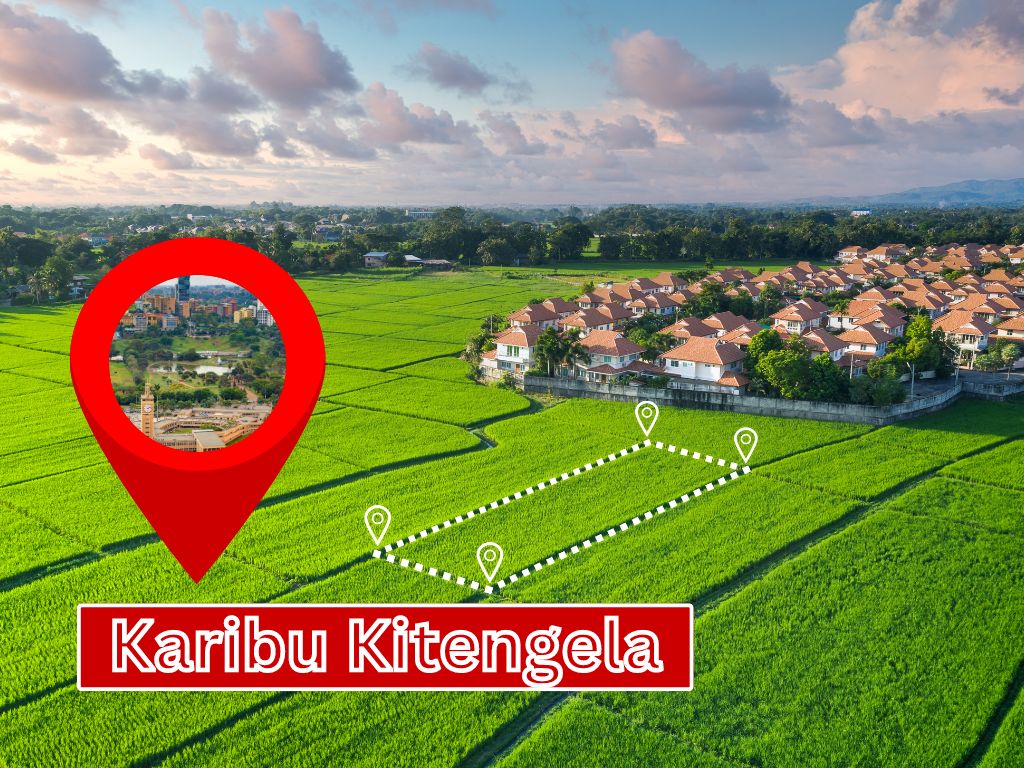
The Legal Process of Buying Land in Kenya
Posted On: 27 Apr, 2024
The Legal Framework for Land Ownership in Kenya
Before delving into the step-by-step process of land ownership in Kenya, it is essential to understand the legal framework that governs land ownership in the country. The Constitution of Kenya, enacted in 2010, provides the basis for land ownership and management.
It recognizes various forms of land ownership, including public, community, and private land. Additionally, the Land Act, Land Registration Act, and the National Land Commission Act establish the procedures and institutions responsible for land administration and management. These laws aim to streamline the land ownership process and protect the rights of individuals and communities.
Step 1: Conducting a Title Search
Once you have identified a piece of land you are interested in purchasing, the first step in the land ownership process is to conduct a title search. This process involves verifying the ownership status and any encumbrances on the land. It is crucial to ensure that the land is free from any disputes or legal issues that may hinder the transfer of ownership.
To conduct a title search, you can visit the local Land Registry office or utilize online platforms such as the eCitizen portal. The ministry enhances the use of the Green Card to assist in facilitating your search by retrieving the information. You will need the details of the land, such as the title number or the name of the registered owner. The title search will provide you with information about the current registered owner, any caveats or restrictions on the land, and any existing mortgages or charges.
Step 2: Verifying Land Ownership Documents
After conducting a title search and ensuring that the land is free from any disputes, the next step is to verify the land ownership documents. This involves scrutinizing the title deed and other supporting documents to ensure their authenticity and validity. It is essential to verify that the person selling the land is the legal owner and has the authority to transfer the ownership rights.
You can verify the land ownership documents by comparing the details on the title deed with the information obtained from the title search. It is also advisable to seek legal advice during this process to ensure all legal requirements are met.
Step 3: Conducting a Land Survey
To avoid any boundary disputes or conflicts in the future, it is crucial to conduct a land survey and clearly assess approved project mutations on site. This step involves hiring a licensed surveyor to measure and map out the boundaries of the land accurately. The surveyor will prepare a survey plan that clearly indicates the dimensions, boundaries, and any existing structures on the land, as indicated in the project maps or mutation.
The land survey is essential for both parties involved in the transaction as it ensures transparency and clarity regarding the land's physical boundaries. It helps prevent future disputes with neighboring landowners and provides a visual representation of the land that can be used during the transfer of ownership process.
Step 4: Applying for a Land Search at the Ministry of Lands
After conducting the necessary due diligence on the land, the next step is to apply for a land search at the Ministry of Lands. This process involves submitting an application and paying the requisite fees to obtain an official search certificate. The land search certificate confirms the current ownership status and any existing interests or encumbrances on the land.
To apply for a land search, you will need to complete the relevant application forms, provide the necessary supporting documents, and pay the standard search fee of Ksh. 500. The application forms can be obtained from the Ministry of Lands offices or downloaded from their official website. The land search certificate is a crucial document that will be required during the transfer of ownership process.
Step 5: Preparing and Signing the Sale Agreement
The sale agreement is a legally binding contract between the buyer and the seller, outlining the terms and conditions of the land sale. It sets out the purchase price, payment terms, and any additional agreements or conditions.
It is advisable to engage the services of a qualified lawyer or conveyancing expert to assist in the preparation and review of the sale agreement. This ensures that all legal requirements are met, and both parties' interests are protected. The sale agreement should be signed by both the buyer and the seller in the presence of witnesses to make it legally enforceable.
Step 6: Paying Stamp Duty and Transfer Fees
As part of the land ownership process in Kenya, the buyer is required to pay stamp duty and transfer fees. Stamp duty is a tax imposed on legal documents, including land sale agreements, and is calculated as a percentage of the land's market value. The current stamp duty rates can be obtained from the Kenya Revenue Authority (KRA) website or by consulting a tax professional.
Transfer fees, on the other hand, are payable to the Ministry of Lands and cover the cost of transferring the land ownership rights from the seller to the buyer. The transfer fees are calculated based on the land's market value and are paid before the transfer of ownership can take place.
Step 7: Registering the Land and Obtaining the Title Deed
The final step in the land ownership process in Kenya is to register the land and obtain the title deed. This involves submitting the necessary documents, including the sale agreement, land search certificate, and proof of payment of stamp duty and transfer fees, to the Ministry of Lands for registration.
The registration process involves the preparation of transfer documents, verification of the documents by the Ministry of Lands officials, and the issuance of a new title deed in the buyer's name. This process may take some time, depending on the workload at the Ministry of Lands offices. Once the registration is complete, the buyer will receive the title deed, confirming their ownership rights.
In conclusion, owning land in Kenya involves following a step-by-step process that ensures legal compliance and protects the rights of both buyers and sellers. It is essential to conduct thorough due diligence, including title searches, verification of ownership documents, and land surveys. Engaging the services of qualified professionals, such as lawyers and surveyors, can help navigate the process smoothly. By purchasing land with Musti Limited and following this guide, you can confidently navigate the land ownership process in Kenya and secure your piece of land conveniently.







Comments (0)
Post Your Comment